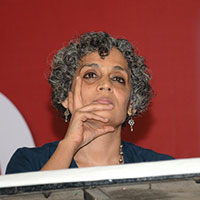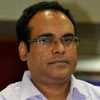Equating dissent with ‘spreading hatred’ is the government’s new tool to deal with criticism
Where the mind is without fear and the head is held high
Where knowledge is free...
- Rabindranath Tagore
These lines by India’s Nobel laureate have inspired many Indians with its vision of a free-thinking, undivided and dynamic nation. However, Tagore’s dream to see India as a “heaven of freedom” is fading today. The space for diverse and contrarian ideas in higher education is shrinking. Two recent incidents clearly show how expressing oneself is not a freedom anymore. First, the de-recognition of the Ambedkar Periyar Study Circle (APSC) in IIT-Madras and second, strong instructions given to UGC chairperson Ved Prakash by the HRD ministry for his views against Rashtriya Uchchatar Shiksha Abhiyan (RUSA) before parliament’s standing committee. Prakash was asked to take permission before articulating any view contrary to the government’s policies.
APSC was formed mainly by the SC/ST students of IIT-M to organise debates and discussions on several social and political issues. No doubt, this forum was very vocal against Brahminism and upper caste hegemony on society and the country’s premier institutions and was critical of the Modi government, which was not welcomed by some in IIT-M. An anonymous letter was sent to the HRD ministry complaining against the APSC. The ministry forwarded this complaint of “creating hatred atmosphere among the students” to the IIT-M director on May 15 seeking its comments. On May 22, the IIT dean for students (DoS) wrote to the APSC, informing the group that it was “derecognised” and will not be allowed to use facilities on the campus including the auditoriums for its functions.
APSC denied the allegations and claimed that the forum did not misuse any privileges given by the institute. Its activities are engaged with the healthy discussion on socio-economic issues on scientific basis to promote the scientific temper among the students which is allowed by the constitution. The forum alleged that DoS had asked it twice to change the name “Ambedkar-Periyar” stating that it was polarising students.
The de-recognition of APSC sparked off a nationwide row. IIT students in Kanpur and Mumbai condemned this act and several left and dalit student organisations staged street protests. Buckling under this opposition, IIT-M reinstated APSC on the evening of June 7. But several important questions have been raised from this episode regarding academic freedom.
Forgotten legacy
IIT-M is situated in Tamil Nadu where Periyar is considered as a great social-political thinker. APSC is not as radical as Ambedkar and Periyar were. The two leaders were recognised as great icons in their time and after. Ambedkar went on to become the head of the constitution drafting committee while EV Ramaswamy Naicker was given the title of Periyar (The Great One) in recognition of his struggle for social justice and equality. Like Ambedkar, Periyar, the founder of DMK, was also a strong critic of Hinduism and its mythological gods. He wrote ‘Sachhi Ramayana’ in which he had described Rama as an invader from the north who killed people of the south (mainly Tamils).
Celebrating or shunning Ambedkar?
 “At a time when Hindutva organisations and media outlets are outrageously celebrating Ambedkar the man who publicly denounced Hinduism, as though he is their very own man, at a time when the Hindu Nationalsts’ campaign of Ghar Wapsi (a revamped version of the Arya Samaj’s ‘Shuddhi’ program) has been launched to get Dalits to return to the ‘Hindu Fold’, why is it that when Ambedkar’s real followers use the name or likeness of Ambedkar they get murdered like Surekha Bhotmange’s family in Khairlanji? Why is it that if a Dalit man has a ring tone on his phone with a song about Ambedkar he gets beaten to death? Why has the APSC been derecognized?”
“At a time when Hindutva organisations and media outlets are outrageously celebrating Ambedkar the man who publicly denounced Hinduism, as though he is their very own man, at a time when the Hindu Nationalsts’ campaign of Ghar Wapsi (a revamped version of the Arya Samaj’s ‘Shuddhi’ program) has been launched to get Dalits to return to the ‘Hindu Fold’, why is it that when Ambedkar’s real followers use the name or likeness of Ambedkar they get murdered like Surekha Bhotmange’s family in Khairlanji? Why is it that if a Dalit man has a ring tone on his phone with a song about Ambedkar he gets beaten to death? Why has the APSC been derecognized?”
From author Arundhati Roy’s statement in support of the APSC
The Hindi translation of this book was banned in Uttar Pradesh in 1969. But the Allahabad high court in 1971 and the supreme court in 1976 removed this ban and upheld the idea of freedom of expression.
The move clearly highlighted how the constitution gave full right to express, discuss and propagate those ideas which might hurt others’ sentiments. But ironically the HRD ministry has forgotten this great tradition which is also the essence of our constitution. Otherwise, it would have not interfered in the APSC affair. In the same fashion, if it had welcomed dissent, it would have taken the UGC chairman’s arguments in the spirit of healthy debate. UGC, after all, is an autonomous body and its chairman has every right to express his ideas on any forum.
Lessons from the past
The most important idea behind the establishment of the university system or other institutions of higher studies is academic freedom. The University of Bologna in Italy, the oldest functional university of the world established in 1088 AD, adopted an academic charter (‘Constitutio Habita’) in the 12th century, which is regarded as the origin of academic freedom. It guaranteed the right of a travelling scholar to unhindered passage in the interests of education. While celebrating the 900th anniversary of its foundation, 430 university rectors signed Magna Charta Universitatum on September 18, 1988 which is an international commitment for academic freedom. The number of signatories continues to grow.
Our present situation compared to this sovereign past is shameful and higher education is shackled by bans and impositions. Universities should be centres of learning and debate of ideas. Students should have an opportunity to study all the ideologies. The ideas of Ambedkar, Periyar, Gandhi, Bhagat Singh, Vivekananda and Golwalkar, or for that matter Marx and Hitler should be open to pupils’ scrutiny. What holds for the students also holds for their teachers.
And this ‘heaven of freedom’ is not an unachievable ideal. We have examples of scholars like Noam Chomsky, who despite his radical and scathing criticism of American economic and foreign policies continues to hold a prestigious position in MIT. Great French philosopher and writer Jean-Paul Sartre, who refused the Noble prize in 1964, was at the forefront of the student movement of the 60s. He even distributed copies of banned Maoist papers on busy Paris streets. When he was arrested in May 1968, president Charles de Gaulle intervened and pardoned him, famously saying that, “You don’t arrest Voltaire.”
Some decade ago Indian universities were fertile grounds of ideological churning. Student politics was based on ideology and student unions were the nursery of future politicians. But now, ideology-based student politics have little impact and most universities do not even have a student union. Teaching standards have also deteriorated and professors with thought-provoking ideas are rare. When a teacher like GN Saibaba of Delhi university dare to speak in a radical tone, authorities don’t hesitate to put him in the jail (despite his 90% physical disabilities).
It’s high time the country awoke to “ever-widening thought and action” in Tagore’s words.
(The article appears in the June 16-30, 2015 issue)

